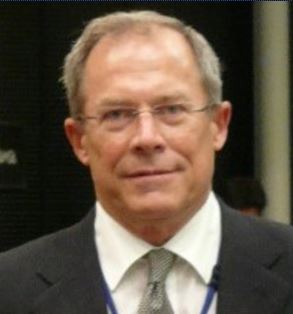The Friends of Science third annual luncheon was held in Calgary on April 27, 2006. Our guest speaker was Dr. Chris De Freitas, Associate professor from the University of Auckland, New Zealand.

George Koch and John Weissenberger, For The Calgary Herald
Published: Friday, April 28, 2006
Scientist Chris de Freitas doesn't seem very scary. The associate professor from the University of Auckland, N.Z.'s, School of Geography and Environmental Science came to Calgary with a defensible proposal: that global warming theory should be debated on its scientific merits -- the facts. Any policy changes aimed at influencing the world's climate should be driven by our scientific knowledge, not "climate catastrophism."
Yet, the mild-mannered de Freitas appears to have the global warming movement frightened to its bones. Even before his luncheon presentation Thursday before the Friends of Science, an event that drew about 200, this newspaper was receiving e-mails challenging the credibility of de Freitas' work at Climate Research, a scientific journal.
He's also the subject of caricature at the New Internationalist, some U.K. neo-Marxists who appear to fulfil their religious needs through adherence to global warming dogma -- and Inquisition-like denunciation of doubters. De Freitas is routinely portrayed as out on the fringes, a tool of Big Oil, an isolated lunatic raging against an issue that's clearly settled.
Most critics avoid engaging him on his two simple questions: Is the world's climate getting warmer and, if it is, is humankind responsible for all or part of this? Perhaps the basic facts are too damning. Human-related emissions of carbon dioxide are the global warming movement's bete noire. Yet as a greenhouse gas, C02 is a punter, vastly outweighed by (natural) water vapour. And human-related C02 emissions are a fraction of this fraction -- 0.12 per cent. Human-related C02 emissions soared after 1940. Yet most of the 20th century's worldwide temperature increase occurred beforehand. How can C02 be the cause? Alarmists exploit "General Circulation Models" to predict future climate catastrophe. Yet these computer programs can't replicate our known climate history.
This is a tiny sample of the evidence de Freitas wields. "Reality is not conducive to alarmism," says de Freitas. "Given a choice between alarmism and honesty, science must always choose honesty."
We've always thought that this is exactly the ground on which the battle over Kyoto - and any variant of "climate change" -- needs to be fought. But for years nearly everybody was willing to surrender the field of facts. So the believers were able to advance their claim that the science was settled. The only question remaining was what to do about it: ruin our economy, or merely disrupt it?
Much of Canada's oil and natural gas industry played along. Officials in the Canadian Association of Petroleum Producers decided to accept the theory's validity (sincerely or otherwise), thereby buying themselves a seat at the policy table and, they hoped, influence over how Kyoto was to be applied.
Intellectually lazy, this was a dangerous game. Governments routinely adopt mad schemes notwithstanding one's willingness to "work with" them. This was, after all, the government of the billion-dollar gun registry, $100-million Innu hamlets and other follies. Remaining skeptics, like Talisman's Jim Buckee and Imperial Oil's Tim Hearn, were portrayed as dinosaurs or unqualified to comment.
Mercifully, it appears Kyoto has cratered and the world is "moving beyond" something it never reached. But it was a very near thing. Crucial was the U.S. government's (president and Congress) refusal to ratify it. Also important were the lengthy delays caused by the Russian government's reservations. (Interestingly, Russia is also a hotbed of scientific skepticism.)
"There's been so much politics, so much belief, so many feelings," says de Freitas. What's needed is "a thorough scientific analysis." Oddly, after all these years he sees a modest trend toward "a more sober approach." In early April, 60 scientists called upon Prime Minister Stephen Harper to launch a review of the science behind Canada's climate policies.
So, now we're back where we were in the early '90s, debating the science.
After the fall of the Soviet Union, Polish ex-dissidents commented that a crucial moment in their awakening was Pope John Paul II's visit to his motherland in 1979. For years, the dispirited dissidents had assumed they were virtually alone, and that most Poles backed the communist regime. But when millions turned out to see the Pope, these seemingly isolated individuals realized they were part of the majority. For Poland's tyrants, it was the beginning of the end.
To those who doubt the scientific basis of global warming theory, we say: Don't let a cabal of government-funded scientists, environmental activists and journalists convince us they're the mainstream.
George Koch is a Calgary freelance writer and John Weissenberger a Calgary geologist. More of their writing can be viewed at their weblog, http://www.drjandmrk.com.
